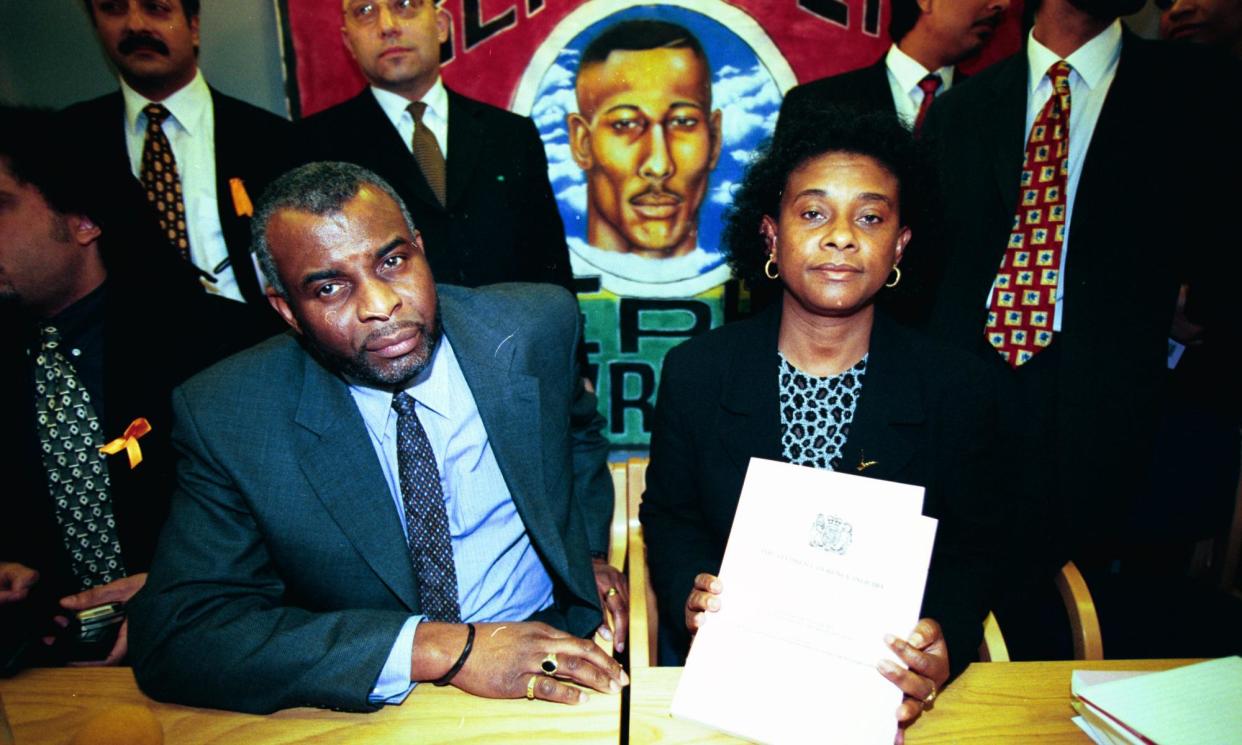Met apologises for spying on police justice campaigners in 1980s and 1990s

The Metropolitan police have issued a series of wide-ranging apologies to campaigners for the “indefensible” use of undercover officers to spy on them, a public inquiry has heard.
The Met admitted to “serious failings and wrongdoing” by some of the undercover officers, conceding there was a “general failure” by senior managers to supervise them properly.
The force said it was “particularly indefensible that many of the anti-racism campaigns” that were spied on “were seeking justice for members of the Black and Asian communities in London and were attempting to hold the [Metropolitan police] itself accountable for the way in which it policed those communities”.
The Met apologised unreservedly for the surveillance, accepting the “corrosive effect this type of discriminatory policing has on public trust”. The espionage was an example of “unacceptable political policing”, it added.
The apologies were issued on Monday as the latest round of hearings at the undercover policing inquiry started.
The inquiry, which is being led by the retired judge Sir John Mitting, has been scrutinising the conduct of about 139 undercover officers who spied on more than 1,000 political groups since 1968. The latest hearings will examine the covert operations between 1983 and 1992.
The inquiry was set up in 2014 after the Guardian revealed that undercover officers had spied on the campaign run by the family of Stephen Lawrence who were fighting for justice after their son was murdered by racists.
Peter Skelton KC, representing the Met, said many of the political and social groups spied on were needlessly targeted.
He said the force admitted that the undercover officers had unnecessarily spied on “political and social justice campaigns, family justice campaigns, community organisations as well as groups that were campaigning for police accountability. These groups did not present any risk of serious public disorder and were not engaged in any criminal or subversive activity.”
A key issue under examination was how the undercover officers frequently deceived women into sexual relationships, often lasting years, while concealing their real identities from them. At least three of theofficers had children with activists they met while undercover.
Skelton repeated apologies to women who were deceived into relationships with undercover officers without knowing their true identity.
He said at least nine undercover officers had “deceitful, abusive and manipulative” sexual relationships in their fake identities between 1983 and 1992. “This was completely unacceptable. So too was the failure of their managers to identify and prevent those relationships from happening.”
Skelton added that the Met aapologised again to the women for “these failings and for the wider culture of sexism and misogyny which allowed them to happen”.
He told the inquiry that more recent reviews had “demonstrated that sexism and misogyny continue to be widespread and enduring features of the culture within” the capital’s police. Skelton said the undercover officers’ disregard for women during the 1980s and 1990s, alongside the indifference of their managers was “a clear and acute manifestation of that culture”.
The Met also apologised to the “wives, partners, and families who have also been harmed by the misconduct” of the undercover officers.
Skelton said the Met’s failings had also included the fiddling of expenses and not looking after the mental health of undercover officers who were put under stress by their covert deployments. “Some officers were undoubtedly harmed by the work they did.”
The inquiry has previously examined the covert activities of the undercover officers in the period between 1968 and 1982. Last year, Mitting issued a critical report in which he concluded that the secret operations to infiltrate leftwing groups in the 1970s and early 1980s were not justified and should have been rapidly closed down.
The retired judge found that undercover police officers collected a “striking and extensive” amount of information about the personal lives of political activists, such as their holiday plans, sexuality and bank accounts.

 Yahoo News
Yahoo News 
